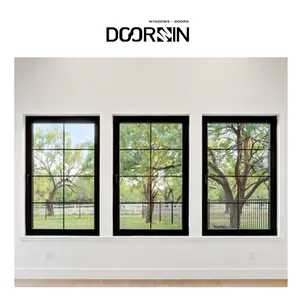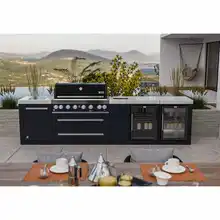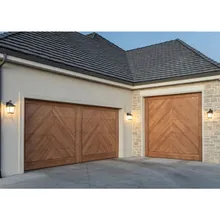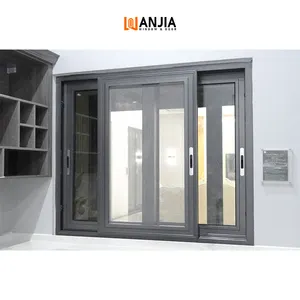What are Windows
Windows are architectural elements designed to admit light, air, and provide a view from a building while simultaneously offering protection from the elements. They are fundamental components in residential, commercial, and industrial constructions, serving both functional and aesthetic purposes. The design of windows may vary widely to suit different climates, preferences, and architectural styles, but their core principles remain consistent: they must be durable, secure, and efficient in energy usage.
Windows are typically made up of a frame that holds panes of glass or other transparent material such as acrylic or polycarbonate. The frame materials can vary from wood to metal or plastic, each offering distinct properties in terms of insulation, maintenance, and appearance. The transparent panes are often treated or coated to enhance thermal efficiency and can be double or triple-glazed to improve soundproofing and reduce heat transfer. For those who use them, whether it's a homeowner looking for replacement windows or a construction company sourcing for a large-scale project, the choice of windows can significantly affect the comfort, energy costs, and overall design appeal of a property.
The operation of windows can also differ; some may slide open horizontally or vertically, others may swing outwards or inwards on hinges, and some are fixed and do not open at all. The style of operation is chosen based on the specific needs of the space they are installed in—considering factors like ease of access, ventilation needs, and aesthetic preference.
Types of Windows
In the realm of construction and real estate, there is a broad range of windows available to meet various architectural demands and personal preferences. Each type serves different purposes and comes with its own set of common use cases:
Casement Windows: These windows are hinged at the side and open outward like a door. They offer excellent ventilation as they can be opened fully; hence they are commonly used in areas that require good air flow like kitchens or bathrooms.
Sliding Windows: Characterized by one or more panels that slide horizontally over each other to open or close. They are space-efficient since they do not require exterior space to operate. Sliding windows are popular in modern apartments and office spaces.
Double-Hung Windows: Consisting of two sashes that move up and down within vertical tracks. They offer versatility as both the top and bottom sashes can be opened for variable ventilation. These are traditional window styles often found in residential homes.
Bay Windows: They project outward from the main walls to create a bay in a room. Bay windows are not just for light and views; they also add architectural interest and are often used as cozy window seats or display spaces in living rooms.
Awning Windows: Similar to casement windows but hinged at the top instead of the side. When open, they create an awning effect which allows ventilation while keeping out rain—making them ideal for areas with frequent precipitation.
These types reflect just a fraction of the diverse window options available on the market today.
How to choose Windows
Selecting the right windows for your business involves considering several factors including functionality, aesthetics, durability, energy efficiency, security features, and budget constraints. When making a decision on which type of window to purchase:
- Evaluate the primary purpose they will serve: whether it's maximizing natural light, providing ventilation, enhancing views, or improving energy efficiency.
- Consider the climate where your property is located as this will impact your choice; for example, double-glazed windows might be preferable in colder climates for better insulation.
- Factor in the style of your building to ensure that your chosen windows complement its architecture.
- Assess the ease of maintenance—materials like vinyl or aluminum might offer lower maintenance compared to wood.
- Look into additional features such as soundproofing if your property is situated in a noisy environment.
- For businesses focusing on sustainability efforts, seeking eco-friendly materials can be crucial.
Ultimately, aligning these considerations with your specific business needs will guide you toward making an informed decision on your window purchase.
Best Windows on Alibaba.com
When sourcing windows for your business ventures through Alibaba.com, you're not just acquiring essential building components—you're tapping into an expansive global marketplace that connects you with suppliers equipped to meet diverse commercial needs. With an extensive range of window types available through Alibaba.com's platform—from chic modern designs ideal for high-end apartments to robust options suitable for industrial applications—you're sure to find products that align with both your aesthetic preferences and functional requirements.
Alibaba.com's commitment to facilitating trade on an international scale means that businesses can efficiently navigate through an array of suppliers offering customizable window solutions. Whether you're looking for specialized functions such as bulletproof glass for heightened security measures or seeking sustainable materials that contribute towards greener building practices, Alibaba.com stands as a gateway to suppliers who can cater to these demands.
Furthermore, Alibaba.com bolsters buyer confidence with services like Trade Assurance—a platform feature designed to safeguard transactions right up until delivery is completed—showcasing their dedication to quality service and customer satisfaction. By leveraging this marketplace's robust infrastructure and user-friendly interface, businesses around the world can procure windows that elevate their construction projects while enjoying an unparalleled purchasing experience.
Common FAQs for Windows
What factors should be considered when selecting windows for commercial buildings?
When selecting windows for commercial buildings, it is important to consider factors such as the building's architectural style, the local climate, energy efficiency requirements, maintenance needs, and any specific functionalities like soundproofing, security, or fire resistance.
How do different frame materials affect the performance of a window?
Different frame materials can significantly impact the performance of a window. For example, aluminum frames are known for their strength and durability, wood frames offer excellent natural insulation, and vinyl frames provide good thermal resistance and require minimal maintenance.
Can windows contribute to energy savings in commercial properties?
Yes, windows can contribute to energy savings by improving thermal insulation. Choosing double or triple-glazed windows with low-emissivity coatings can help reduce heat transfer, thereby lowering heating and cooling costs in commercial properties.
Are there specific types of windows recommended for high-noise areas?
For high-noise areas, windows with soundproofing features such as thick glass panes or laminated glass are recommended. Double or triple-glazed windows with inert gas fillings can also provide additional noise reduction.
What are the advantages of custom-designed windows for businesses?
Custom-designed windows allow businesses to tailor the size, shape, style, and features to meet specific architectural requirements or branding needs. They can enhance the building's aesthetic appeal and address unique functional demands.
How does the opening pattern of a window affect its usability?
The opening pattern of a window affects its usability by determining how it operates. For instance, sliding windows are suitable for limited spaces, casement windows offer full ventilation when open, and fixed windows are ideal for areas where opening is not required.
What are the benefits of incorporating eco-friendly windows into commercial construction?
Eco-friendly windows made from sustainable materials or designed to improve energy efficiency can reduce environmental impact and potentially lead to cost savings due to lower energy consumption. They can also contribute to building certifications like LEED.
How does the glass type influence a window's functionality?
The type of glass used in a window influences its functionality by affecting factors like energy efficiency (through thermal insulation), safety (through tempered or laminated options), and noise reduction (via multi-pane configurations).
Are there specific window features that enhance building security?
Certain window features can enhance building security, such as reinforced glass, multi-point locking systems, and the use of security films or bars. These features deter unauthorized entry and can provide additional peace of mind.
How do I ensure compliance with local building codes when installing new windows?
To ensure compliance with local building codes, it is essential to consult with local authorities or a professional architect/engineer regarding requirements such as egress, energy conservation, impact resistance, and other relevant regulations before purchasing and installing new windows.
What after-sale services are commonly offered for commercial window purchases?
After-sale services for commercial window purchases may include free spare parts provision, return and replacement options, onsite training or installation assistance, and onsite inspection services to ensure satisfactory installation and operation.










































 浙公网安备 33010002000092号
浙公网安备 33010002000092号 浙B2-20120091-4
浙B2-20120091-4